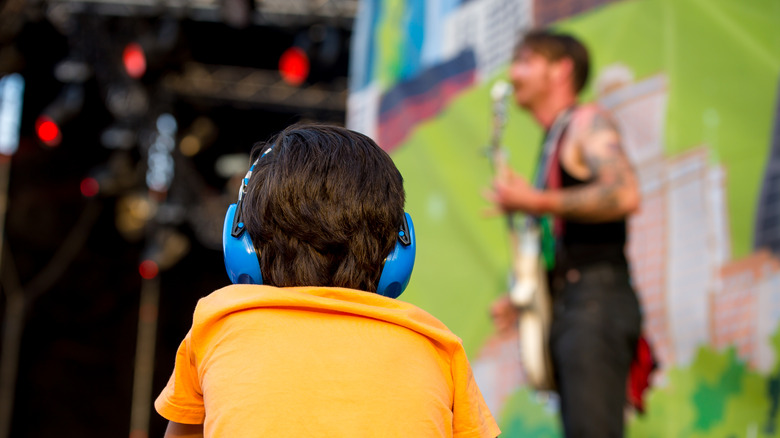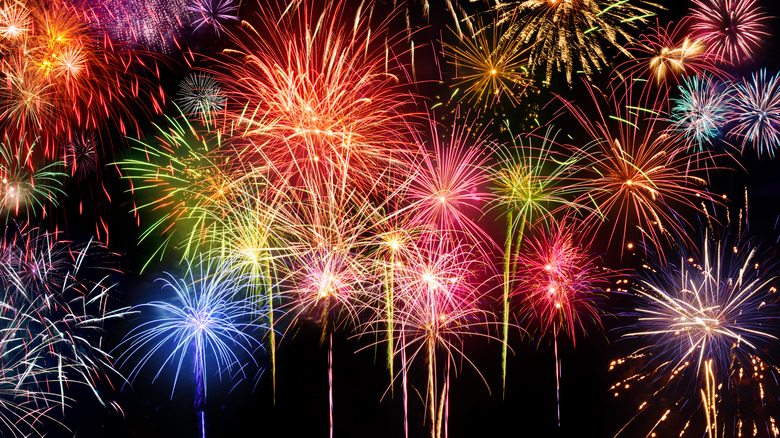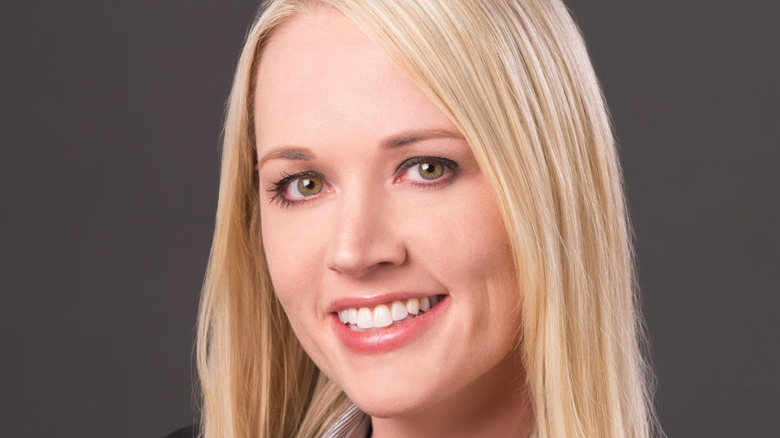Audiologist Dr. Hope Lanter On How To Protect Your Hearing At Summer Events - Exclusive
Hearing damage caused by loud noises is much more common than you might think. According to one study conducted by the Centers for Disease Control and Prevention (CDC), nearly 24% of the adult population and nearly 17% of the adolescent population of the United States shows signs of hearing damage due to exposure to loud noises. Any sound over 85 decibels can harm your hearing if you're around it for long enough. According to audiologist Dr. Hope Lanter, any time you have to raise your voice to be heard above the ambient noise, that noise is loud enough to damage your hearing.
During the summer months, many of the events and activities we enjoy – concerts, fireworks displays, and even boating – involve ambient noise that exceeds that 85-decibel threshold. Fireworks are often as loud as 125 decibels, while concerts are typically around 100 decibels, and the motors on speedboats can be as loud as 90 decibels. Every time we attend these events or engage in these activities, we inadvertently put our hearing at risk.
Luckily, there are some simple things you can do to protect your hearing while you enjoy everything summer has to offer. In an exclusive interview with Health Digest, Dr. Lanter shared her tips for keeping your ears safe and your hearing intact this summer.
Know which events might put your ears at risk
Dr. Hope Lanter said that the first step to protecting your hearing this summer is knowing which events could put your ears at risk. She recommends downloading an app that shows how loud the sounds around you actually are.
"A dB reader is a good way to get an idea of how loud daily sounds around you are," Dr. Lanter explained. "Some sounds may be louder than you think."
Once you get a good idea of which everyday sounds are over that 85-decibel threshold, you'll have a better idea of which activities and events will involve noises that could damage your hearing. If you're unsure, having the app on your phone means you can pull it up wherever you are and see if your hearing is at risk. Once you have a good idea of what noise levels can cause hearing damage, you can make better decisions about how to protect yourself.
Protecting your ears during loud events and activities
Any time you're headed to a loud event or activity, toss some earplugs or noise-reducing earmuffs in your bag. According to Dr. Hope Lanter, you don't even have to wear them the entire time. "The amount of time spent exposed to loud noise is key, so even if you wear earplugs for a portion of the time, it is better than not at all," she explained.
If you don't have earplugs or noise-reducing earmuffs, limit the amount of time you spend at events or doing activities that involve lots of noise to reduce your risk. Dr. Lanter added that proximity to loud noises is also a key factor in hearing damage. If you're standing close to the fireworks as they go off or right next to the speaker at a concert, the risk of hearing damage increases exponentially. So another easy way to protect your ears is to enjoy these events from a distance.
With a good understanding of what kind of sounds can cause hearing damage, some decent ear protection, and a plan for how to mitigate your risks, you can revel in all the loud summer fun you want.
Dr. Hope Lanter has over twenty years of experience as an audiologist working directly with patients and helping them find the best hearing loss treatments that fit their individual needs. She currently sits as the Director of Partner Success and Lead Audiologist with hear.com.


